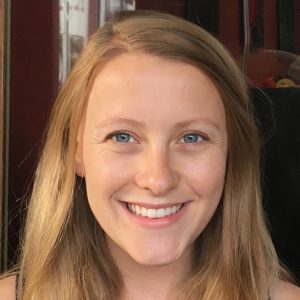Abby Stevens
Talk Title: Modeling the Impact of Social Determinants of Health on Covid-19 Transmission and Mortality to Understand Health Inequities
Watch Abby’s Spotlight Research Talk
Talk Abstract: The Covid-19 pandemic has highlighted drastic health inequities, particularly in cities such as Chicago, Detroit, New Orleans, and New York City. Reducing Covid-19 morbidity and mortality will likely require an increased focus on social determinants of health, given their disproportionate impact on populations most heavily affected by Covid-19. A better understanding of how factors such as household income, housing location, health care access, and incarceration contribute to Covid-19 transmission and mortality is needed to inform policies around social distancing and testing and vaccination scale-up.
This work builds upon an existing agent-based model of Covid-19 transmission in Chicago, CityCOVID. CityCOVID consists of a synthetic population that is statistically representative of Chicago’s population (2.7 million persons), along with their associated places (1.4 million places) and behaviors (13,000 activity schedules). During a simulated day, agents move from place-to-place, hour-by-hour, engaging in social activities and interactions with other colocated agents, resulting in an endogenous colocation or contact network. Covid-19 transmission is determined via a simulated epidemiological model based on this generated contact network by tuning (fitting) model parameters that result in simulation output that matches observed Covid-19 death and hospitalization data from the City of Chicago. Using the CityCOVID infrastructure, we quantify the impact of social determinants of health on Covid-19 transmission dynamics by applying statistical techniques to empirical data to study the relationship between social determinants of health and Covid-19 outcomes.
Bio: Abby Stevens is fourth year statistics PhD student at the University of Chicago advised by Rebecca Willett. She is interested in using data science techniques to address important social and political issues, such as climate science, public health, and algorithmic fairness. She graduated with a math degree from Grinnell College in 2014 and then worked as a data scientist at a healthcare tech company before entering graduate school. She has been involved in a number of data science for social good organizations and is a primary organizer of the Women in Data Science Chicago annual event.
